NATO
The industrial crisis that threatens victory in the war
Niclas Vent
Updated 20.44 | Published 20.34
News
CITY OF ARLAND. An industrial crisis threatens Ukraine's chances of victory in the war against Russia.
Today, NATO concluded a giant meeting in Sweden, where the NATO Secretary General warned that the sacrifices still lie ahead.
- This means a real cost to our communities. It is a cost that will not disappear, says Jens Stoltenberg.
- The question is: How should we pay?
The fact that Sweden has taken a step closer to NATO gave a glimmer of joy to the "Nato Industry Forum" (NIF).
But NATO's giant conference, which was arranged during Tuesday and Wednesday at Arlandastad north of Stockholm, was otherwise held under a compact cloud of anxiety.
Over 800 participants from 235 companies and 24 allied countries had come to Sweden, for the alliance's largest collaborative meeting between politics, military and industry.
Delegations from Australia, Georgia, Japan, South Korea and Ukraine have also been present, for the first NIF to be organized outside a member state.
Together, the delegates have had to solve a looming crisis: It is the industries of the NATO countries that must provide Ukraine with what is required to win the war against Russia.
But the defense sector has languished since the end of the Cold War and is not equipped to handle a war which, in the words of Defense Minister Pål Jonson, is about "scale, scale, scale and volume".
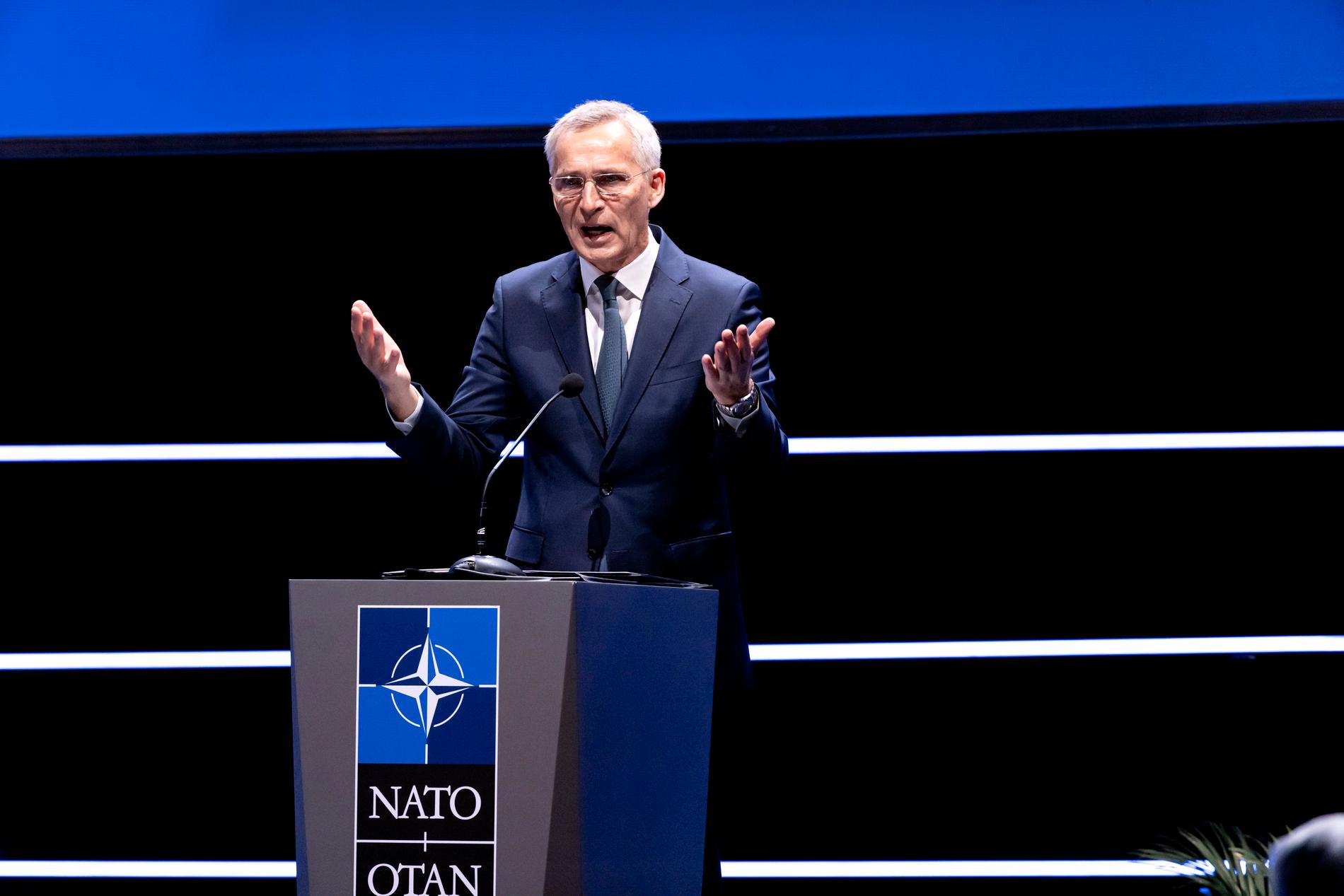
Secretary General Jens Stoltenberg was one of the opening speakers at the NATO Industry Forum on Wednesday.
1 / 2Photo: Magnus Sandberg
"Must increase the pace of our defense production"
Since February 2022, Western countries have donated huge amounts of materiel from their own stockpiles, but production capacity has not yet increased much enough to replace what has been given away.
NATO's Secretary General calls the situation "unsustainable". Europe's industries must deliver "high quality, high quantity and fast".
- We must increase the pace of our defense production to meet Ukraine's needs, but also to strengthen our own deterrence, and our own defense, says Jens Stoltenberg.
While people continue to die in Ukraine, the countries of Europe are also facing sacrifices that have yet to be made.
As Stoltenberg sees it, there are only two long-term solutions:
The NATO countries must either build up huge stockpiles of ammunition - or keep a large industrial capacity in reserve, which in peacetime is not needed.
Now there is neither or – and both options will cost money. Very.
- This means a real cost to our communities. It's a cost that won't go away. If we want spare capacity, it will cost. We want the reserve capacity, because we want to be able to increase production when there is a need. The question is: How should we pay? says Jens Stoltenberg.
- I don't have the answer.
Oleksandr Kamyshin, Ukraine's minister of strategic industry, later pointed out the obvious:
- The highest cost is paid in human life.
Oleksandr Kamyshin was the former head of the Ukrainian Railways, but is now the Minister of Strategic Industry. Photo: Magnus Sandberg
Kamyshin, a gentle and soft-spoken man with a military undercut hairstyle, is in Sweden to ask Western industries to invest in Ukraine.
A logical first step would be to build factories for maintenance and repairs in Ukraine, then start with assembly and research, and finally full-scale production, he believes.
- NATO is calling for more, faster, cheaper and better. Ukraine can help meet all these goals, says Kamyshin.
One investment that has been discussed is to build the Swedish armored personnel carrier CV 90 - of which Sweden donated 50 - in Ukraine. Discussions about it continue, according to Kamyshin.
- We are grateful to Sweden and to BAE Systems for having built these fantastic machines, the CV 90. They are already on the Ukrainian battlefields, helping us save our people and drive out the Russians.
- We have had a discussion about local production, and it is an ongoing process. It is part of our constant discussion with BAE Systems. They have opened an office in Ukraine, the first UK company, and just this morning I had a proper discussion with them, so we are moving forward on the issue.
"Almost calculated"
Sweden's Minister of Defense Pål Jonson (M) points out a number of measures to solve the industrial crisis: Long-term conditions for the industry, targeted procurement of ammunition and a developed government defense industry strategy.
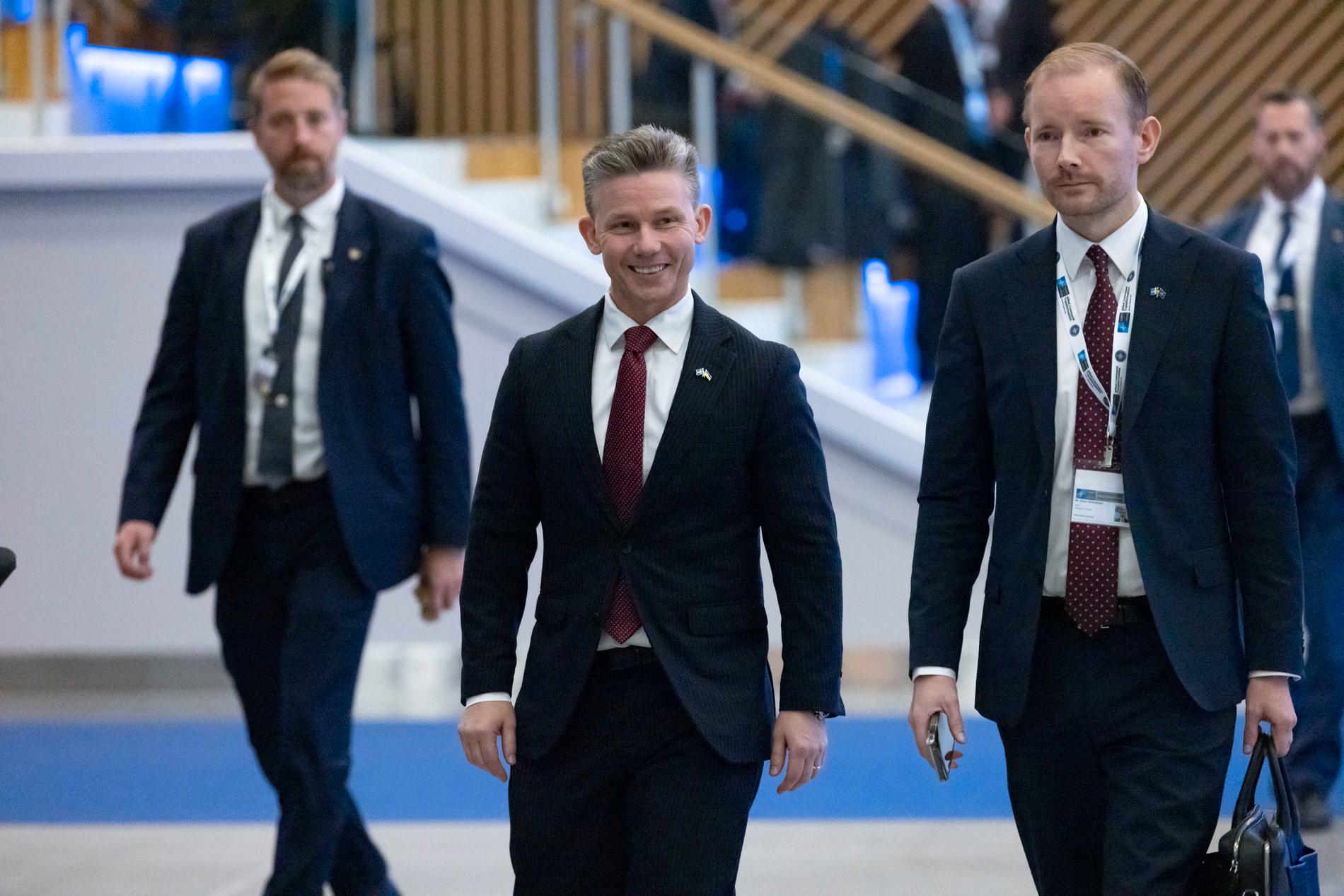
Defense Minister Pål Jonson (M) during the NATO Industry Forum conference. Photo: Magnus Sandberg
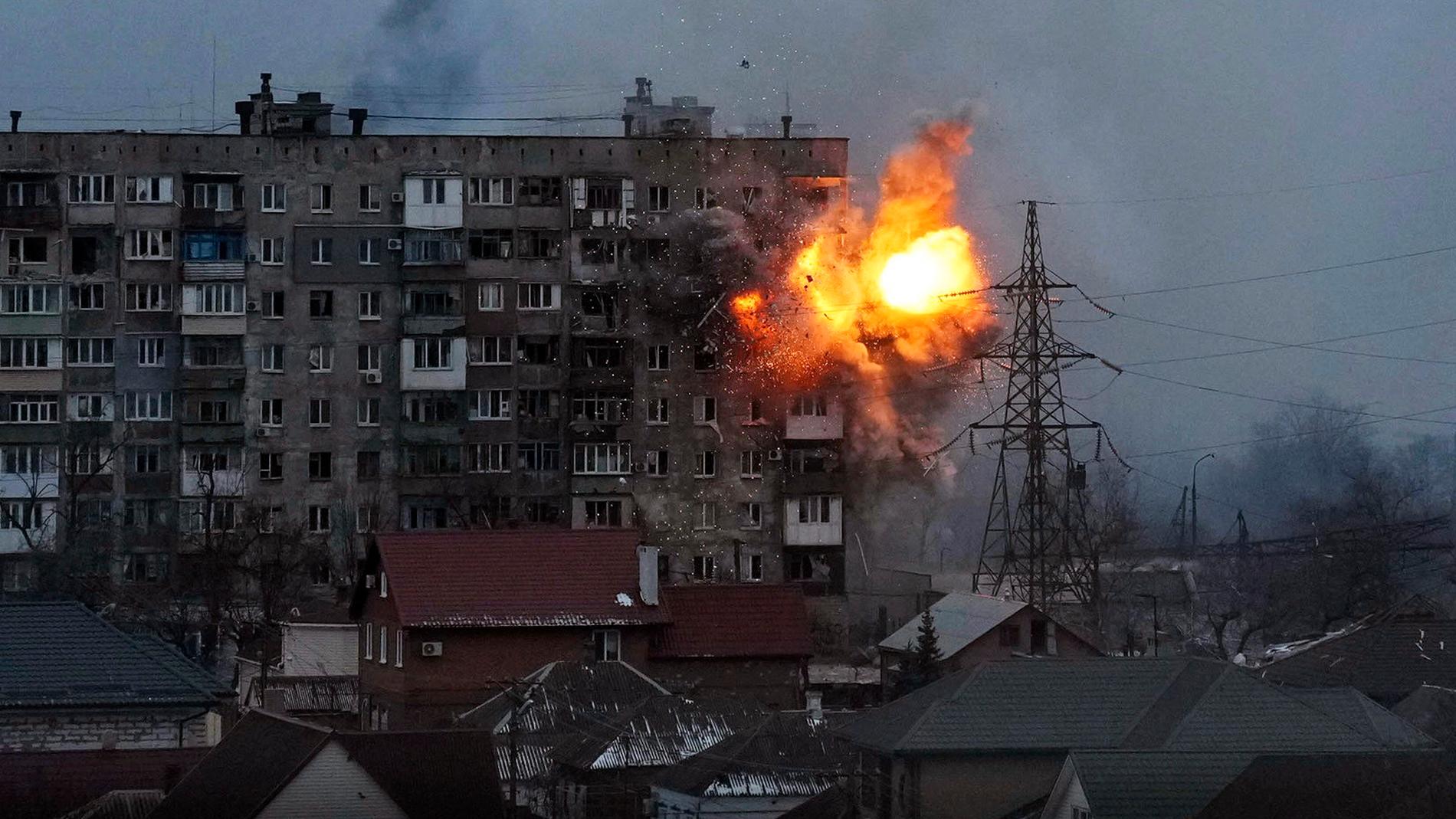
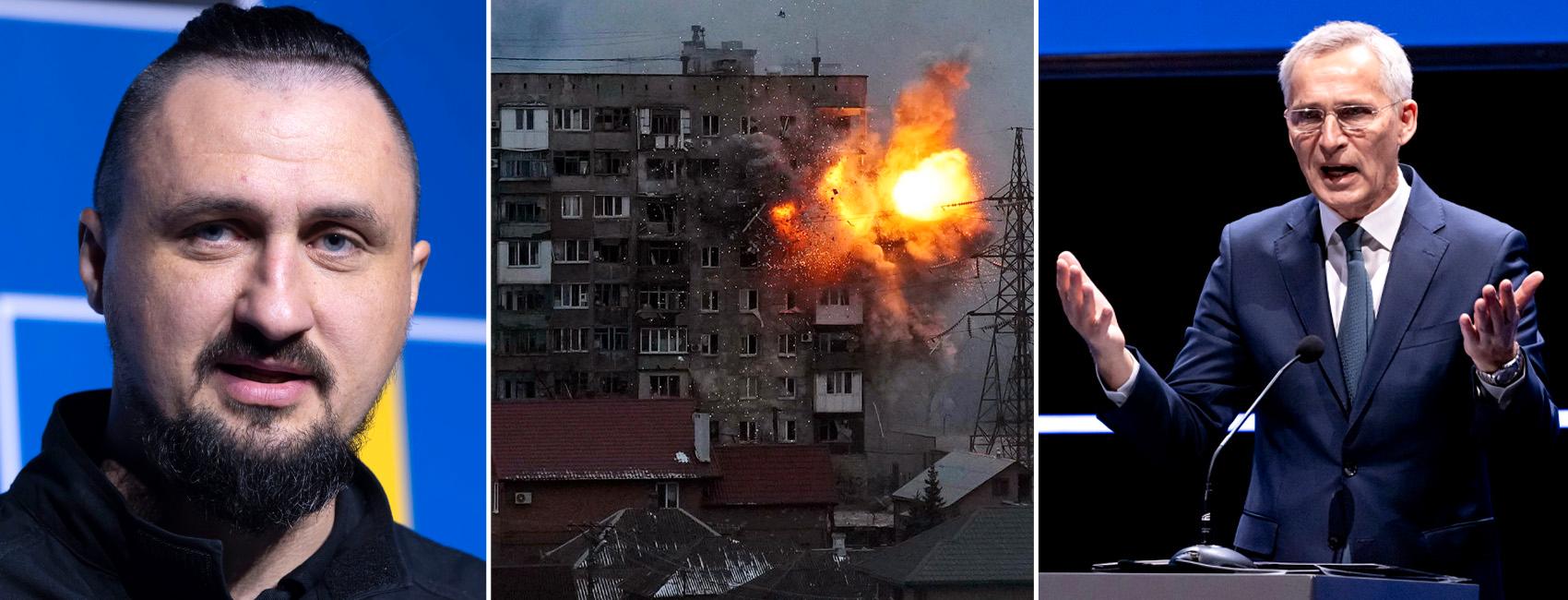
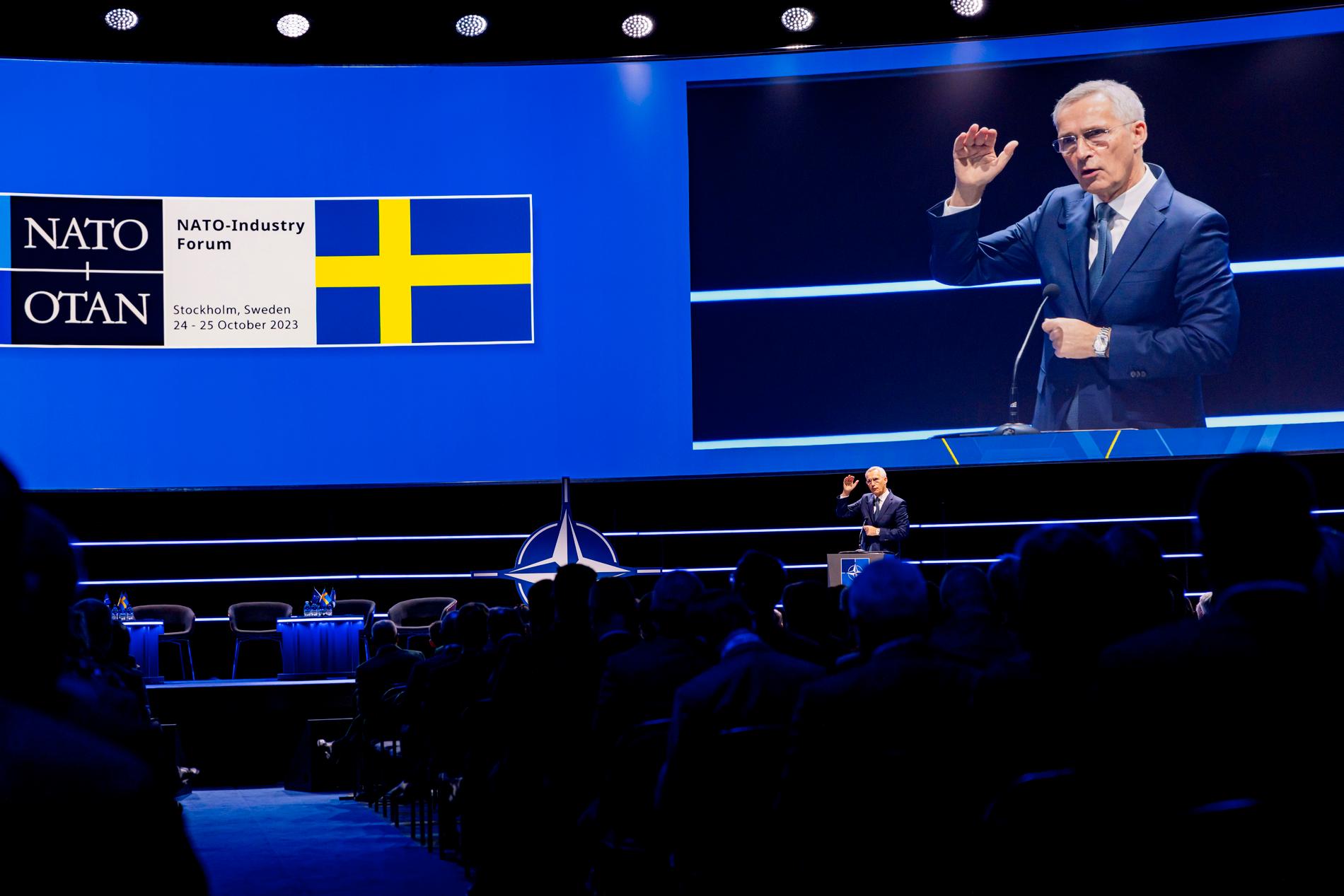
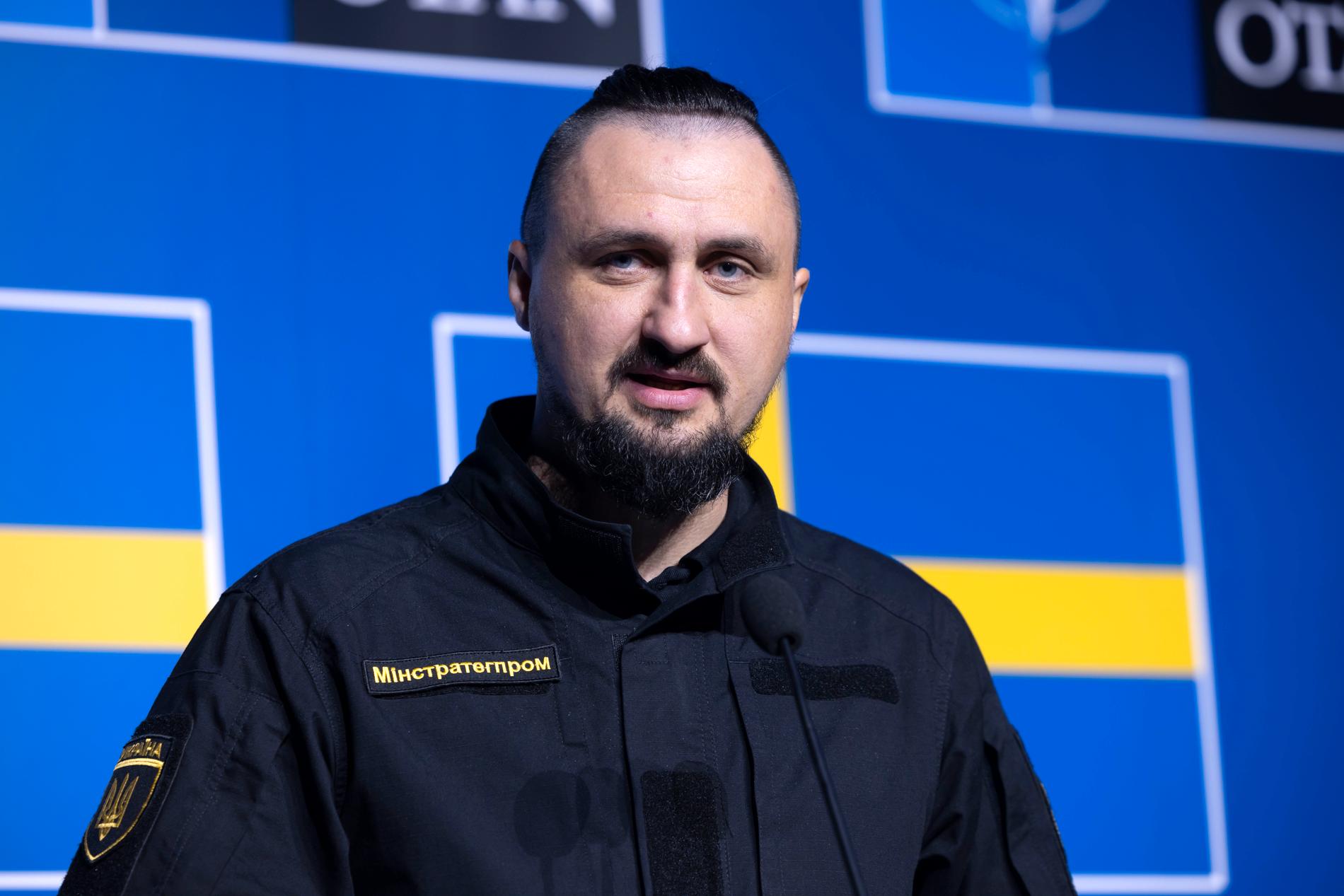
Inga kommentarer:
Skicka en kommentar